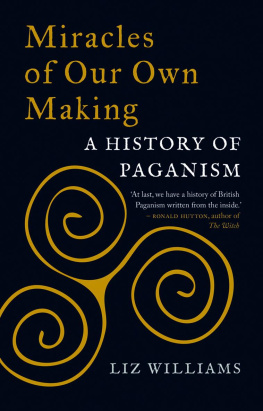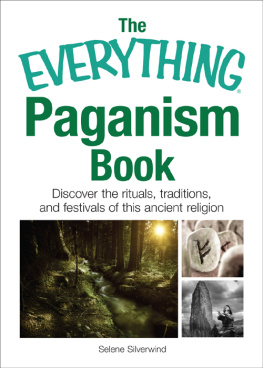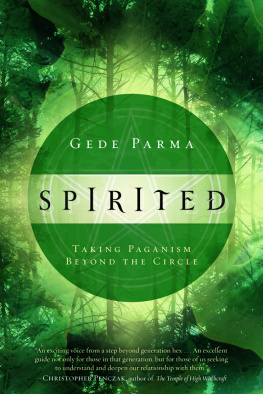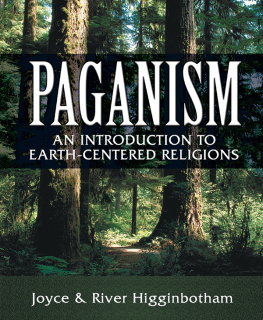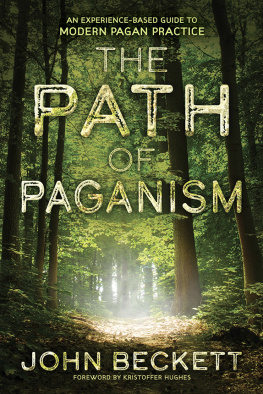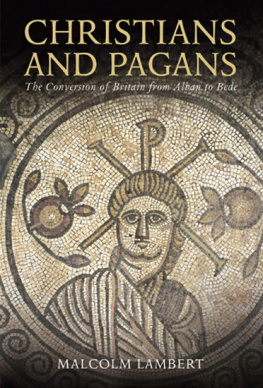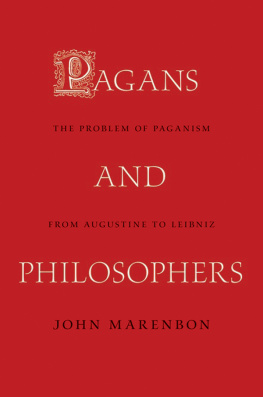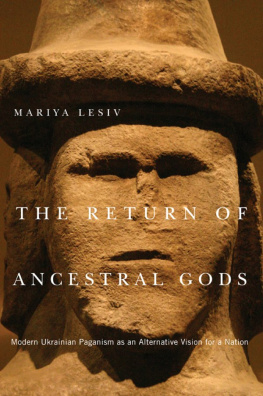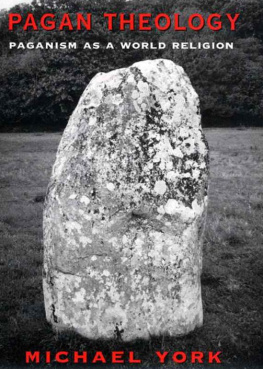The Last Pagans of Rome
The Last Pagans of Rome
Alan Cameron


Oxford University Press, Inc., publishes works that further
Oxford Universitys objective of excellence
in research, scholarship, and education.
Oxford New York
Auckland Cape Town Dar es Salaam Hong Kong Karachi
Kuala Lumpur Madrid Melbourne Mexico City Nairobi
New Delhi Shanghai Taipei Toronto
With offices in
Argentina Austria Brazil Chile Czech Republic France Greece
Guatemala Hungary Italy Japan Poland Portugal Singapore
South Korea Switzerland Thailand Turkey Ukraine Vietnam
Copyright 2011 by Oxford University Press, Inc.
Published by Oxford University Press, Inc.
198 Madison Avenue, New York, New York 10016
www.oup.com
Oxford is a registered trademark of Oxford University Press
All rights reserved. No part of this publication may be reproduced,
stored in a retrieval system, or transmitted, in any form or by any means,
electronic, mechanical, photocopying, recording, or otherwise,
without the prior permission of Oxford University Press.
Library of Congress Cataloging-in-Publication Data
Cameron, Alan, 1938
The last pagans of Rome / Alan Cameron.
p. cm.
Includes bibliographical references.
ISBN 978-0-19-974727-6
1. Christianity and other religionsRoman. 2. Church historyPrimitive and early church, ca. 30-600.
3. RomeHistoryEmpire, 30 B.C.-476 A.D. 4. Christianity and other religionsPaganismHistory
Early church, ca. 30-600. 5. PaganismRelationsChristianity. 6. EmperorsRome. I. Title.
BR170.C36 2011
261.220937dc22 2010009147
Undertaken with the assistance of the Stanwood Cockey Lodge Foundation.
1 3 5 7 9 8 6 4 2
Printed in the United States of America
on acid-free paper
For old friends
TDB, GWB, WVH, PEK, JAN
and (once again)
for Carla
ACKNOWLEDGMENTS
The seeds that eventually grew into this volume were sown in articles I published as long ago as 1966 and 1977. It was in the 1980s that I first had the idea of turning my approach to the so-called pagan reaction into a book, and it was then that I began compiling the information on subscriptions that now fills chapters 1214. It was also then that I came up with the title, which, as my ideas progressed, has turned out to be more ironic than I originally intended. It would (I suspect) have been a very different book if I had written it then. But I had not yet thought out all the issues to my own satisfaction, and other projects (mostly Greek) beckoned more insistently. Yet I never gave up on the last pagans, and at the turn of the millennium decided that the moment had come to pick up the threads again. The last decade or so has not only seen much important new work, but also the unexpected discovery of important new texts.
I have incorporated radically revised versions of three early articles, and substantially revised and updated the unpublished drafts of were added at a late stage, provoked by the continuing emphasis in recent continental scholarship on the entirely lost (and surely trivial) history of Nicomachus Flavianus. At first I thought of publishing them separately, but given the ever increasing importance accorded this history in modern writing on the pagan reaction, they too belong in this book.
My debt to the published work of Alfldi, Barnes, Bloch, Brown, Chastagnol and Paschoud (among many others) will be obvious. Many friends have sent me books and offprints, supplied information, commented on drafts or discussed problems with me over many years. I think particularly of Tim Barnes, Glen Bowersock, Christopher Jones, Franca Ela Consolino, Bob Kaster, Arnaldo Marcone, John North, Lellia Cracco Ruggini, Rita Lizzi Testa, Michele Salzman, Peter Schmidt, and Jim Zetzel. I am especially grateful to Michele for organizing a symposium on my views in May 2008 (and to Carmela Franklin for hosting it at the American Academy in Rome); and to Tim for generously taking the time to give the entire penultimate version of the manuscript a thorough critical reading, saving me from many errors.
I have also profited from criticisms and information of various sorts from Neil Adkin, Tom Banchich, Doug Boin, Philippe Bruggisser, Richard Burgess, J.-P. Callu, Giovanni Cecconi, Brian Croke, Michel Festy, Gavin Kelly, Dale Kinney, Hartmut Leppin, Neil McLynn, Silvio Panciera, Umberto Romano, Cristiana Sogno, John Weisweiler, and many others over the years. I wish I could recall the names of all those who asked questions after lectures that started a train of thought or led me to rethink an issue. Irene SanPietro helped with editorial work on a difficult manuscript, and David Ratzan performed the Herculean task of compiling the index. Hrica Valladares suggested the cover illustration. I am particularly grateful to the Andrew W. Mellon Foundation for awarding me an emeritus fellowship that covered many expenses, and to the Stanwood Cockey Lodge Fund of Columbia University for a generous subvention to defray the cost of publication. Finally, a special thank you to Stefan Vranka and the staff of Oxford Press USA for accepting so forbidding a manuscript in such difficult times, and for the promptest and most efficient operation I have encountered in forty years of publishing books.
CONTENTS
CHAPTER 1
Pagans and Polytheists
CHAPTER 2
From Constantius to Theodosius
CHAPTER 3
The Frigidus
CHAPTER 4
Priests and Initiates
CHAPTER 5
Pagan Converts
CHAPTER 6
Pagan Writers
CHAPTER 7
Macrobius and the Pagan Culture of His Age
CHAPTER 8
The Poem against the Pagans
CHAPTER 9
Other Christian Verse Invectives
CHAPTER 10
The Real Circle of Symmachus
CHAPTER 11
The Pagan Literary Revival
CHAPTER 12
Correctors and Critics I
CHAPTER 13
Correctors and Critics II
CHAPTER 14
The Livian Revival
CHAPTER 15
Greek Texts and Latin Translation
CHAPTER 16
Pagan Scholarship: Vergil and His Commentators
CHAPTER 17
The Annales of Nicomachus Flavianus I
CHAPTER 18
The Annales of Nicomachus Flavianus II
CHAPTER 19
Classical Revivals and Pagan Art
CHAPTER 20
The Historia Augusta
APPENDIX
The Poem against the Pagans
ILLUSTRATIONS
The Last Pagans of Rome
INTRODUCTION
The ruin of paganism, in the age of Theodosius, is perhaps the only example of the total extirpation of any ancient and popular superstition; and may therefore deserve to be considered, as a singular event in the history of the human mind
Gibbon, Decline and Fall of the Roman Empire, Ch. xviii
The last pagans of my title are the nobles of late fourth-century Rome. Although they spent their days moving between their grand Roman mansions and a variety of suburban villas, the oldest families owned estates all over Italy, North Africa, and many other parts of the empire, thus controlling the lives of hundreds of thousands. In the region of Hippo, according to Augustine, people said that if one particular noble converted, no pagans would be left.
Next page

